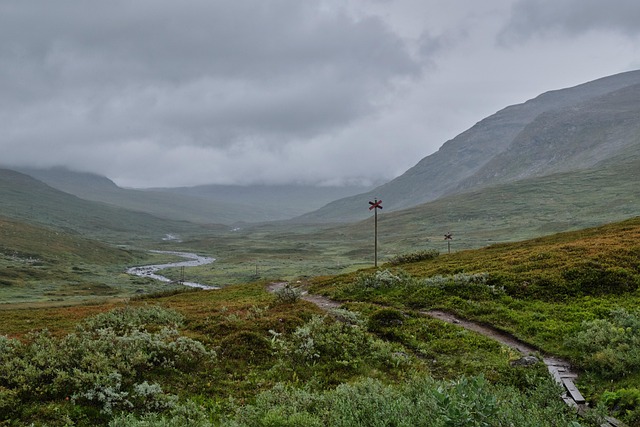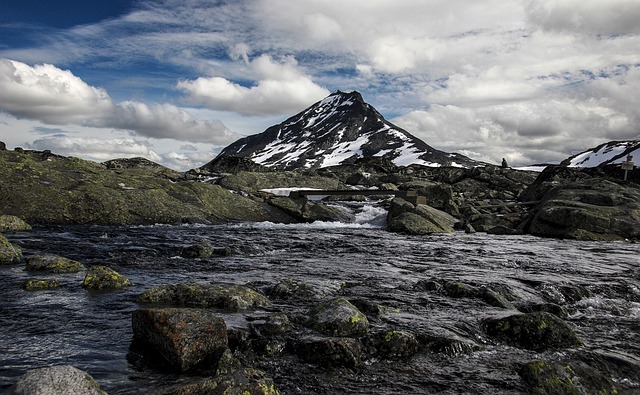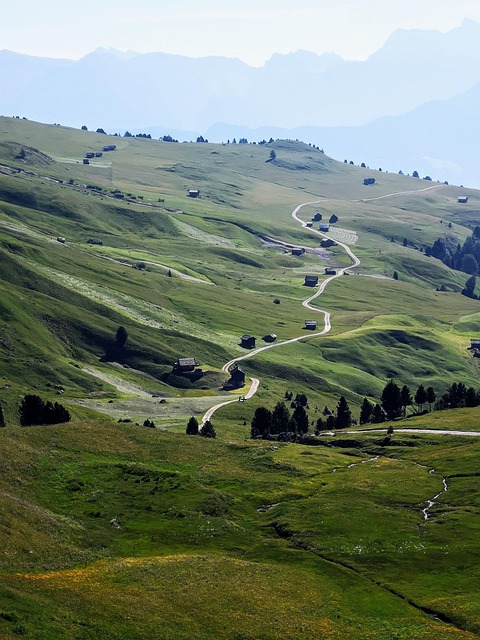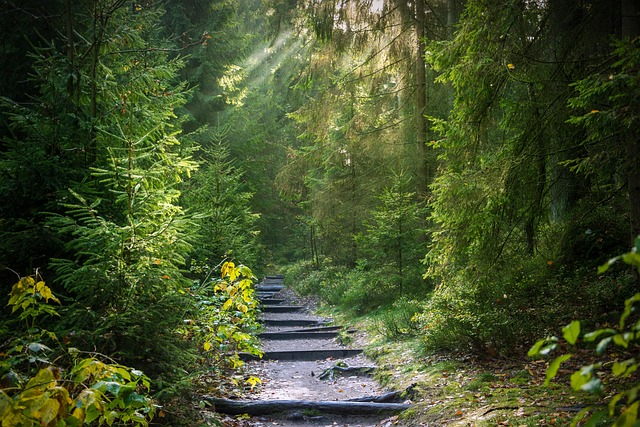
Category: Best Hiking Trails Eugene Oregon
Best Hiking Trails Eugene Oregon: An In-Depth Exploration
Introduction
Welcome to the captivating world of hiking trails in Eugene, Oregon! This article aims to guide you through the diverse and breathtaking outdoor experiences that await enthusiasts in this vibrant city. Eugene has established itself as a haven for hikers, offering a plethora of trails that meander through lush forests, climb majestic peaks, and showcase the region’s natural beauty. From novice hikers to seasoned adventurers, there’s a trail suited for every skill level and interest. Get ready to discover the top hiking trails that make Eugene a must-visit destination for outdoor enthusiasts.
Understanding Best Hiking Trails Eugene Oregon
Definition and Core Components
At its core, “Best Hiking Trails Eugene Oregon” refers to a curated selection of hiking routes within and surrounding the city limits of Eugene, Oregon. These trails are renowned for their exceptional beauty, varied terrain, and accessibility. The best hikes in Eugene offer a unique blend of challenges and rewards, attracting hikers from across the globe. Key components that define these trails include:
- Diverse Terrain: From gentle riverbanks to steep mountain slopes, Eugene’s trails showcase the region’s varied landscapes.
- Scenic Beauty: Hikers are treated to breathtaking views of lush forests, cascading waterfalls, and on clear days, glimpses of Mount Hood.
- Wildlife Encounters: The trails are home to an abundance of local flora and fauna, providing opportunities for wildlife spotting.
- Historical Significance: Some trails have a rich history, passing through areas inhabited by Native American tribes or following historic paths.
Historical Context
Hiking as a recreational activity has deep roots in Eugene’s history. The city’s natural beauty has drawn visitors for centuries, and the establishment of state parks and forests in the early 20th century further solidified its reputation as an outdoor paradise. Local hiking clubs and trail maintenance organizations have played a pivotal role in developing and preserving these trails over the years. Today, Eugene boasts an extensive network of trails that cater to all interests, from easy family strolls to demanding multi-day expeditions.
Global Impact and Trends
International Influence
Eugene’s hiking trails have gained international recognition, attracting hikers and nature enthusiasts from around the world. The city’s unique blend of urban accessibility and untouched natural beauty has contributed to its growing global appeal. Many visitors are drawn to Eugene as a base for exploring the Pacific Northwest’s iconic landscapes, including Mount Hood National Forest and Crater Lake National Park.
Shaping Trends
Several key trends have influenced the development and popularity of hiking trails in Eugene:
- Sustainability Focus: There is a growing emphasis on environmentally sustainable trail practices, including erosion control, native plant restoration, and minimizing impact on delicate ecosystems.
- Accessibility and Inclusion: Efforts to make trails more accessible to individuals with disabilities and diverse fitness levels have gained momentum, ensuring that everyone can enjoy the outdoors.
- Digital Mapping and Navigation: Advanced GPS mapping and mobile apps have revolutionized trail exploration, providing hikers with real-time information and navigation assistance.
- Community Engagement: Local hiking clubs and organizations actively involve the community in trail maintenance and conservation, fostering a sense of stewardship among residents and visitors alike.
Economic Considerations
Market Dynamics
The hiking trails industry in Eugene contributes significantly to the local economy through various channels:
- Tourism: Hiking trails are a major draw for tourists, driving demand for accommodations, restaurants, and outdoor gear retailers. According to the Lane County Convention & Visitors Bureau, outdoor recreation accounts for over $1 billion in economic impact annually.
- Recreational Spending: Locals and visitors alike spend considerable amounts on hiking permits, trailhead snacks, and equipment rentals, supporting local businesses.
- Real Estate: The appeal of living near scenic hiking trails influences property values and attracts real estate investors looking to capitalize on the outdoor lifestyle.
Investment Patterns
Investor interest in Eugene’s hiking trails has led to several notable developments:
- Public-Private Partnerships: Collaborations between government agencies and private businesses have resulted in trail development projects, ensuring high-quality infrastructure.
- Real Estate Developments: The proximity to prime hiking trails has spurred the creation of outdoor-focused residential communities, catering to nature enthusiasts.
- Outdoor Equipment Retail: Local businesses specializing in outdoor gear and apparel have flourished due to the growing demand from hikers and outdoor adventurers.
Technological Advancements
Impact on Hiking Trails
Technology has played a transformative role in enhancing the hiking experience in Eugene:
- GPS Tracking and Mapping: Advanced GPS systems and mobile apps, like AllTrails and Gaia GPS, provide accurate trail maps, real-time tracking, and user-generated content, making navigation more efficient.
- Drone Technology: Drones are used for trail surveillance, mapping, and promotional videos, offering new perspectives of the trails and attracting potential visitors.
- Wearable Devices: Fitness trackers and smartwatches provide hikers with vital statistics like distance traveled, elevation gained, and calorie burn, adding a technological edge to outdoor recreation.
Future Potential
The future holds exciting possibilities for integrating technology into hiking trail management:
- Smart Trailheads: Integration of digital signage at trailheads can provide real-time updates on trail conditions, weather, and local wildlife sightings.
- Augmented Reality (AR) Experiences: AR apps could offer interactive trail guides, enhancing the educational aspect of hikes and providing contextual information about plants and animals.
- Online Community Engagement: Social media platforms and dedicated hiking forums can facilitate community building, sharing of experiences, and collective trail maintenance efforts.
Policy and Regulation
Governing Bodies
Several key organizations and agencies play a crucial role in managing and regulating hiking trails in Eugene:
- Oregon Department of Parks and Recreation (ODPR): Oversees state parks and recreation areas within the region, ensuring proper trail maintenance and accessibility.
- U.S. Forest Service: Manages national forest lands surrounding Eugene, including trail development, permitting, and conservation efforts.
- Local Hiking Clubs: Organizations like the Eugene Hiking Club actively participate in trail maintenance, advocacy, and promoting hiking as a recreational activity.
Policies and Their Influence
The policies and regulations governing hiking trails have far-reaching effects:
- Trail Access and Permitting: Fees and permits for trail use help fund maintenance and conservation efforts while ensuring responsible recreation.
- Wildlife Conservation: Regulations regarding wildlife interaction and trail disturbance contribute to the preservation of local ecosystems and species protection.
- Environmental Protection: Strict policies on littering, trail erosion, and resource extraction safeguard the natural beauty and ecological integrity of the trails.
- Community Engagement: Policies encouraging public input and community involvement in trail decision-making foster a sense of ownership and stewardship among residents.
Challenges and Criticisms
Overcoming Obstacles
Despite its many accolades, Eugene’s hiking trail system faces several challenges:
- Crowded Trails: Popular trails can become overused, leading to erosion and negative environmental impacts. This issue is particularly prevalent in high-traffic areas.
- Lack of Maintenance: Inadequate funding and staffing can result in neglected trails, affecting safety and the overall user experience.
- Wildfire Risks: The region’s dry summers increase the risk of wildfires, posing a significant threat to trails, wildlife habitats, and nearby communities.
Proposed Solutions
Addressing these challenges requires a multi-faceted approach:
- Trails Master Plans: Developing comprehensive trail master plans can help distribute user traffic, prioritize maintenance, and ensure sustainable trail management.
- Public-Private Funding: Encouraging partnerships between public agencies and private organizations can provide additional resources for trail maintenance and conservation.
- Community Engagement and Education: Increasing public awareness about responsible hiking practices and the importance of trail stewardship can lead to more sustainable use.
- Prescribed Burns: Implementing controlled wildfire management techniques, such as prescribed burns, can reduce the risk of severe wildfires.
Case Studies: Successful Applications
1. Mount Pisgah Arboretum Trails
Overview: The Mount Pisgah Arboretum, located north of Eugene, boasts an extensive network of trails winding through diverse ecosystems. These trails offer a unique opportunity to study local flora and fauna while enjoying breathtaking views.
Success Factors:
- Ecosystem Preservation: The arboretum’s focus on preserving native plant species has created a thriving habitat, attracting a wide variety of bird species and wildlife.
- Educational Programs: Interpretive signs along the trails provide valuable information about the plants and animals found in the region, enhancing the visitor experience.
- Community Involvement: Local schools and conservation groups regularly use the trails for educational outings, fostering environmental stewardship among youth.
2. McKenzie River Trail
Setting: Stretching over 40 miles, the McKenzie River Trail is a scenic long-distance trail that follows the picturesque McKenzie River. It’s a must-do for experienced hikers seeking a challenging and rewarding adventure.
Key Achievements:
- Scenic Beauty: The trail showcases the region’s natural beauty, including lush forests, rapid rivers, and stunning waterfalls, offering panoramic views at various points.
- Wildlife Diversity: The McKenzie River ecosystem supports a rich array of wildlife, providing opportunities for bird watching, deer spotting, and studying river life.
- Multi-Use Approach: The trail accommodates hikers, runners, and mountain bikers, promoting inclusive outdoor recreation while managing user conflicts through designated segments.
3. Amazon Trail at Alton Baker Park
Location: Alton Baker Park, nestled in the heart of Eugene, features a network of trails, including the Amazon Trail, which meanders through a diverse urban forest.
Notable Features:
- Urban Forest Conservation: The trail highlights efforts to preserve and enhance urban forests, providing a peaceful escape from the city while showcasing the benefits of green spaces.
- Accessibility: Well-maintained and accessible, the Amazon Trail caters to a wide range of visitors, including families with strollers and individuals with mobility challenges.
- Community Engagement: Local schools and community groups regularly use the trail for educational walks and social gatherings, fostering a sense of connection to nature.
Future Prospects
Growth Areas
The future of hiking trails in Eugene holds exciting possibilities:
- Urban Trail Expansion: There is potential to expand and interconnect urban trails, creating a continuous network that allows hikers to explore the city while enjoying natural settings.
- Multi-Use Trails: The trend towards inclusive trail use will continue, with designs accommodating various outdoor activities while prioritizing safety and conflict resolution.
- Digital Integration: Advanced GPS technology, augmented reality applications, and interactive maps will enhance the hiking experience, appealing to tech-savvy outdoor enthusiasts.
Emerging Trends
Keep an eye out for these emerging trends:
- Sustainable Trail Design: Focus on minimizing environmental impact, using native plants in restoration efforts, and implementing eco-friendly trail construction methods.
- Wellness Trails: Incorporating elements that promote physical and mental well-being, such as mindfulness stations and fitness challenges along trails.
- Community-Driven Initiatives: Increased collaboration between hikers, local businesses, and government agencies to shape trail development based on community needs and feedback.
Conclusion: Hiking Trails as a Catalyst for Change
Eugene, Oregon, stands as a testament to the power of hiking trails in transforming urban landscapes and fostering a connection with nature. The city’s diverse trail system has not only enhanced the quality of life for residents but also attracts adventurers from around the globe. As technology advances and environmental awareness grows, the future of hiking trails in Eugene looks bright, promising new opportunities for exploration, conservation, and community building.
FAQ Section
Q: Are there trails suitable for beginners in Eugene?
A: Absolutely! Eugene offers numerous beginner-friendly hikes with gentle slopes and scenic views. The Amazon Trail at Alton Baker Park and the Fern Ridge Path are popular choices.
Q: How do I stay safe while hiking in the area?
A: Always check trail conditions before heading out, wear appropriate footwear, bring water and snacks, and let someone know your planned route. Bear spray is recommended for certain trails.
Q: Can I camp along these trails?
A: Camping is generally not allowed on most trails due to conservation efforts and potential wildlife disturbance. However, there are designated camping areas nearby, including the McKenzie River Campground.
Q: Are dogs allowed on hiking trails?
A: Dogs are typically permitted on trails but must be kept on a leash at all times to prevent disturbing wildlife. Some trails may have specific restrictions, so check local regulations before heading out.
Q: How can I contribute to trail conservation efforts?
A: You can participate in volunteer trail maintenance events organized by local hiking clubs and organizations. Donating to conservation funds and practicing responsible hiking habits also make a significant impact.









